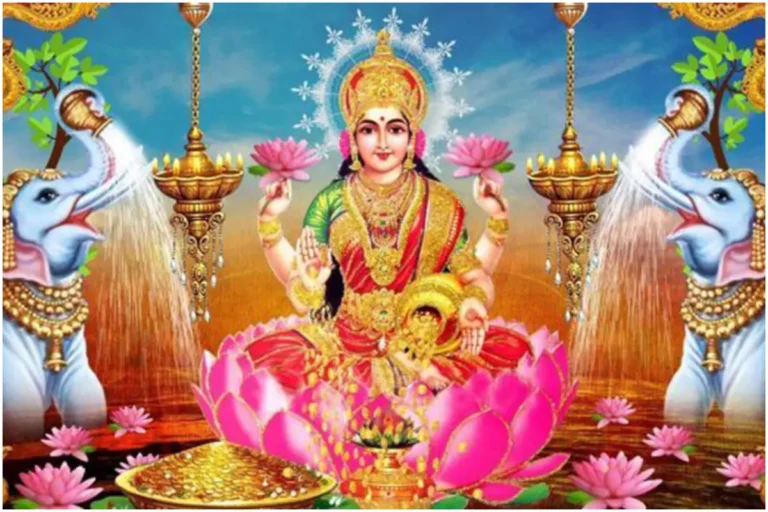Contents
ToggleIn short
Lakshmi Puja is a Hindu religious festival that falls on the Amavasya day (new moon day) of the Hindu calendar month Vikram Samvat of Kartik, the third day of Deepawali and is considered the main festive day of Deepawali.
Lakshmi Puja
According to legend, Lakshmi, the goddess of wealth, prosperity, auspiciousness and good fortune, and consort of Lord Vishnu, visits her devotees and bestows them with gifts and blessings. To welcome the Goddess, devotees clean their homes, decorate them with ornaments and lights, and prepare sweets and delicacies as offerings.
Devotees believe that the happier Lakshmi is about the visit, the more she blesses the family with health and wealth. In Bengal, Lokkhi Pujo or Laxmi puja is performed on Sarada Purnima, the full moon day following Vijaya Dashami. This puja is also known as Kojagori Lokkhi pujo. Women worship Goddess Laxmi in the evening after cleaning their house and decorating the floor of their houses with alpona or rangoli.
People wear new clothes or their best outfits as the evening approaches. Then, diyas are lit, pujas are offered to Lakshmi, and to one or more additional deities depending on the region of India; generally Ganesha, Saraswati and Kubera. Lakshmi symbolizes wealth and prosperity, and her blessings are invoked for a good year ahead.
On this day, mothers, who work hard throughout the year, are acknowledged by the family. Mothers embody a part of Lakshmi, the good fortune and prosperity of the household. Small earthenware lamps filled with oil are lit and placed in rows by some Hindus along the parapets of temples and homes. Some leave diyas drifting on rivers and streams. Important relationships and friendships are also acknowledged during the day, by visiting relatives and friends, exchanging gifts and sweets.
After the puja, people go out and celebrate by lighting fireworks. Children enjoy sparklers and a variety of small fireworks, while adults enjoy playing with ground chakra, Vishnu chakra, flower pots (anaar), sutli bomb, chocolate bomb, rockets and the biggest fireworks.
Fireworks signify the celebration of Diwalias as well as a way to drive away evil spirits. After the fireworks, people return to a family feast, conversations and mithai (sweets, desserts). People also perform vaibhava Lakshmi vrat for a single day, it is believed that doing vrat on Diwali gives the blessings of vrat doing it 21 times.
Vaibhavalakshmi Vrat is also celebrated in many parts of India in the month of Margashirsha (the ninth month of the Hindu calendar) every Friday. Vaibhav means 'Prosperity and Wealth' and hence Goddess Vaibhavalakshmi is believed to protect devotees from misfortunes and bestow upon them grace, happiness, wealth and prosperity.
Social networks
celebrate the third day of the full moon Diwali festival, Lakshmi Puja. According to legend, Lakshmi, the goddess of wealth, prosperity, auspiciousness and good fortune, and wife of Lord Vishnu, visits her devotees and bestows them with gifts and blessings. To welcome the Goddess, devotees clean their homes, decorate them with ornaments and lights, and prepare sweets and delicacies as offerings. #calendar #mythology #myth #legend #hindou #diwali #lakshmi #vishnu
Picture

